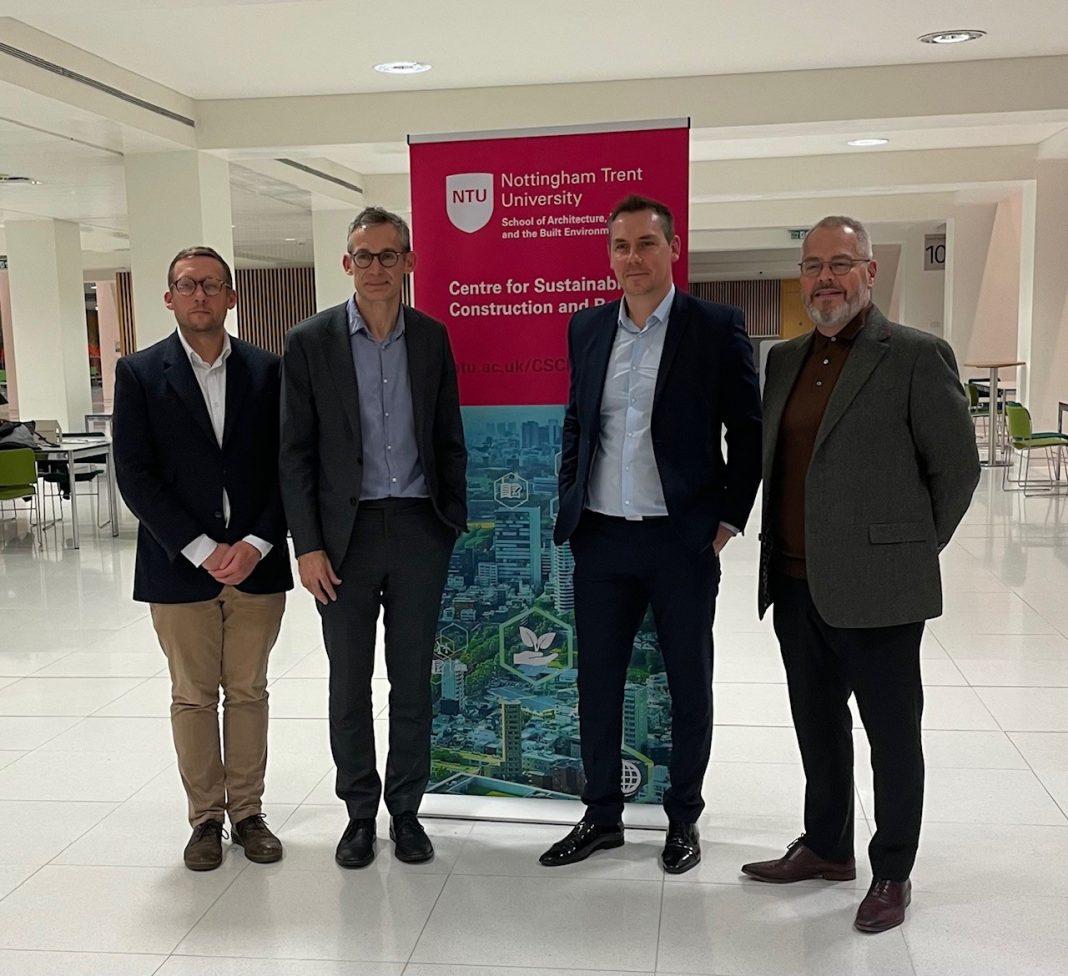Focus has become an official partner of Nottingham Trent University’s School of Architecture, Design and the Built Environment (ADBE), with its newly launched £1.5m Centre for Sustainable Construction and Retrofit.
As part of this arrangement, Jason Redfearn, managing partner at the Nottingham-headquartered consultancy, has been appointed as lead for Focus’ ongoing contribution to the centre which will include skills development, research, training, and consultancy support to the University in a mutual drive to help the UK construction sector to reach net zero carbon. It will also offer various related placement and employment opportunities for students.
The company has supported built environment programmes at the University for seven years and now the relationship has been cemented by this new partnership.
The Centre for Sustainable Construction and Retrofit will bring together a range of expertise from leading experts to help the construction sector reach the ambitious net zero climate change targets by 2050 and benefit students wishing to pursue a sustainability focussed career within construction.
“The Focus team is excited to be a partner of ADBE and the Centre for Sustainable Construction and Retrofit on a three-year framework,” said Jason Redfearn. “We are committed to a sustainable future for the built environment and this partnership will enable us to share our expertise with future generations.
“Focus has a long history of supporting the built environment teaching and learning at Nottingham Trent University, providing lecturing and other support, which has helped to develop skills in the sector. Now we have built on our long-standing relationship by official partnering as the University launches this exciting new project. I am very pleased to be actively involved and look forward to continuing to play a key role in the drive towards net zero in the construction sector.”
During the three-year term, Focus is committed to student engagement, lectures, internships, industry insights, promotion of the Centre for Sustainable Construction and Retrofit, as well as an award for students associated with excellence in sustainability in the built environment.
Founder partner at Focus, Kevin Osbon, who is an alumnus and a lecturer at the University, said: “Focus is an innovator – a company that is at the forefront of sustainability – and this partnership with Nottingham Trent University and the new Centre for Sustainable Construction and Retrofit allows us all to be a part of the sustainability revolution.
“We take great pride in sharing our sustainability expertise with future generations of construction professionals, and those who currently work in the sector – helping us all towards a net zero target.”
The Centre, part of the School of Architecture, Design and the Built Environment at NTU, will explore how the built environment sector transitions to a low carbon future, while addressing the retrofit skills gap via the creation of new courses and providing consultancy support for business.
It was launched at the university’s Newton Building, City Campus, during an event that was open to policy makers, business leaders, academics and students. Focus’ Jason Redfearn was among the speakers exploring the challenges and opportunities for the built environment sector to meet Net Zero 2050.
“Net-zero by 2050 presents a huge challenge to the construction sector, which accounts for up to 50 per cent of carbon emissions,” said Professor Richard Bull, an expert in energy, sustainability and the built environment and Deputy Dean of ADBE, who will lead the new centre.
“An absence of skills, knowledge and expertise threaten to derail plans for the UK’s important net zero targets, but this ground-breaking centre will enhance the way in which existing buildings and new construction can meet those all-important climate change objectives.
“NTU has a well-earned reputation for sustainability in the built environment and our research in housing retrofit in particular has a strong track record. We plan to develop new ways to support industry, to help them learn the new skills needed to retrofit existing properties en masse and create new buildings in a sustainable way.”



